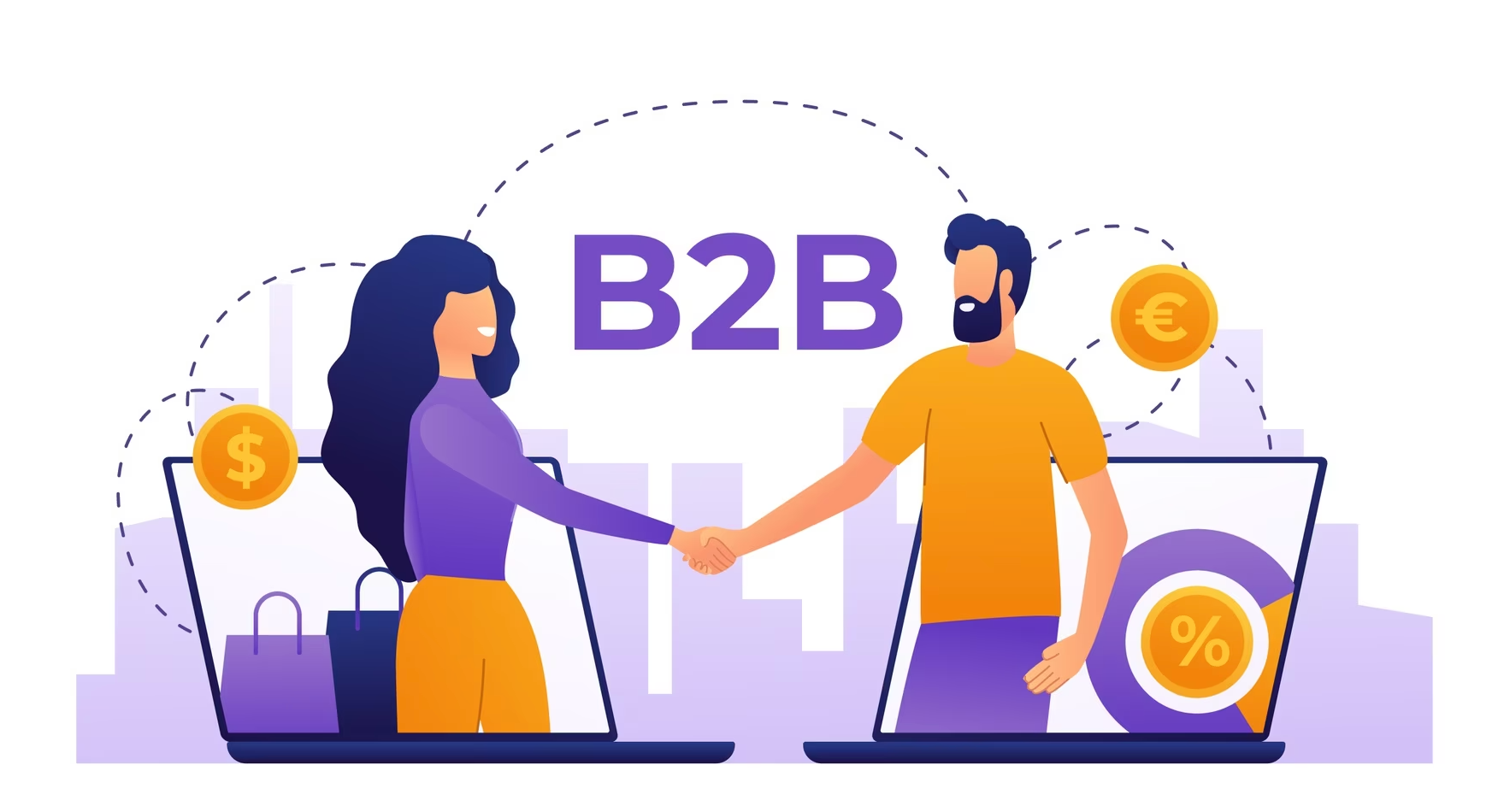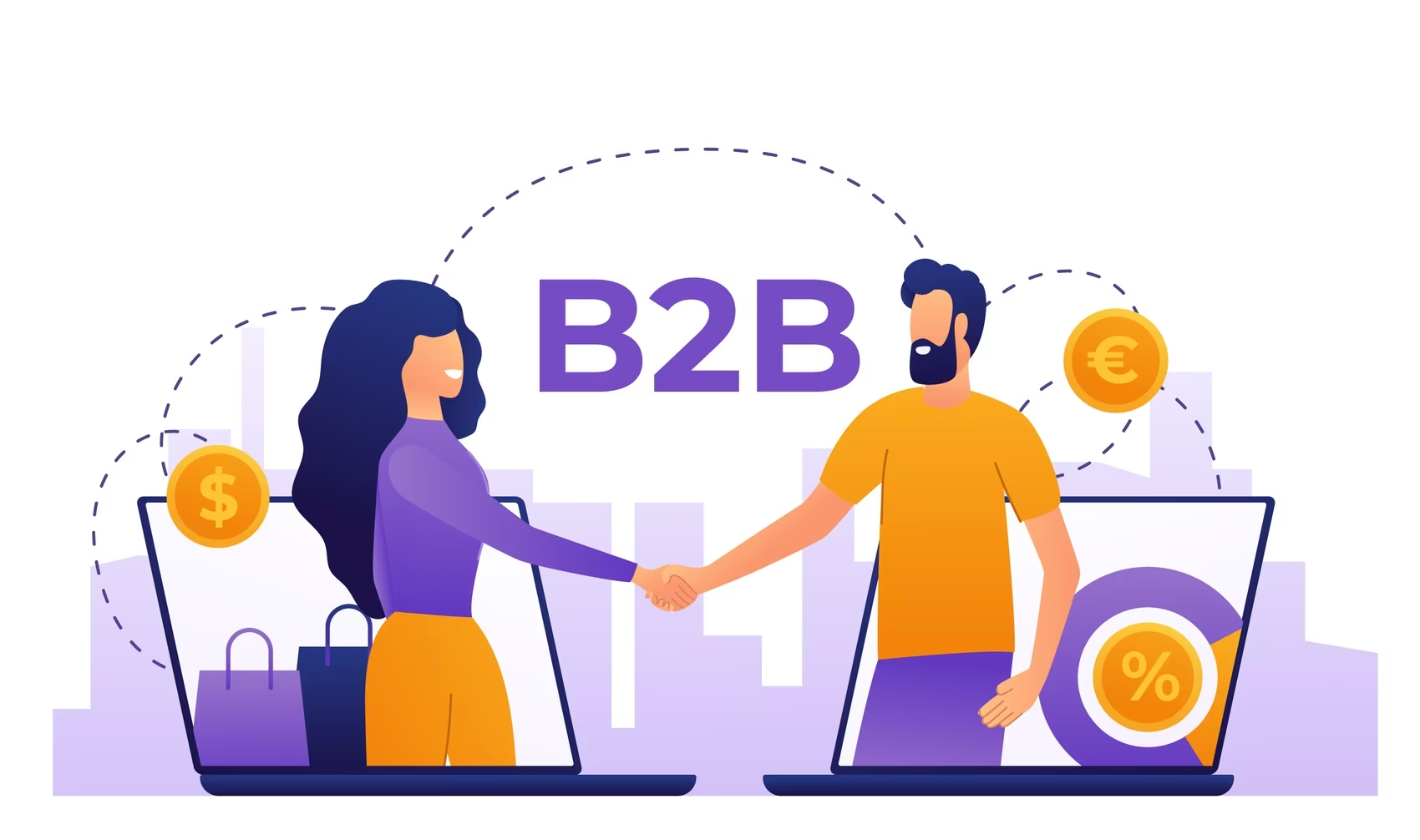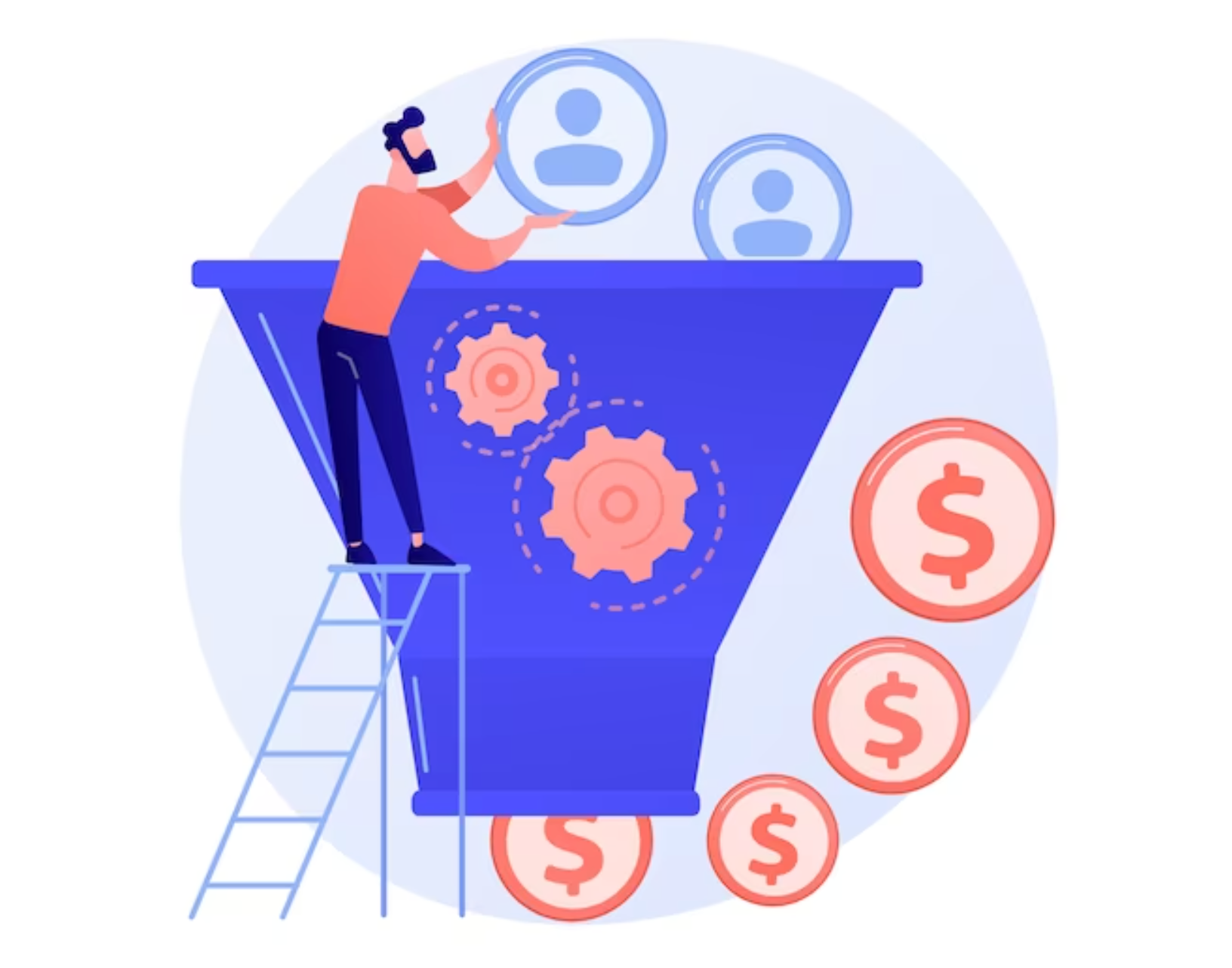Imagine diving into the world of enterprise B2B sales, where opportunities are as vast and intricate as a complex puzzle.
In this guide, we’ll unveil the secrets to understanding how B2B sales differ from SMB sales and equip your sales team with the knowledge they need to succeed.
From navigating the challenging enterprise B2B sales funnel to crafting effective marketing tactics, we’ll show you how to build profitable relationships with large companies and unlock their potential for long-term success.
Get ready to conquer the world of enterprise sales like a true pro!
Table of Contents
- Key Takeaways
- The Complexity of Enterprise B2B Sales
- Understanding the Differences Between Enterprise and SMB Sales
- Navigating the Enterprise B2B Sales Funnel
- Effective Marketing Tactics for Enterprise B2B Sales
- Building Successful Team Structures in Enterprise Sales
- Key Strategies for B2B Enterprise Sales Representatives
- A Different Approach: Tailoring Sales Approaches for SMB Sales
- The Distinct Purchasing Processes of Enterprise and SMB Sales
- Further Comparing Enterprise B2B Sales to SMB Sales
- Navigating the B2B Enterprise Sales Funnel
- Conclusion

Key Takeaways
- Enterprise B2B sales deals are complex, high-risk endeavors that can take years to close.
- Enterprise B2B sales target companies with 1000+ employees and over $1bn annual revenue.
- Effective enterprise lead generation requires focusing on fit, understanding pain points, mapping the account, targeting lower organizational levels, and prospecting geographically.
- Enterprise B2B sales require a clear understanding of the target market and ideal customer profile.

Looking to master the realm of Enterprise B2B sales? Darren, CEO of Rampd, brings a proven framework that demystifies the complexities of B2B sales, distinguishing it from SMB sales. Equip your sales team with the knowledge and strategies to excel in the enterprise landscape. Schedule a call with Darren today and set your sales team on the path to B2B success.
The Complexity of Enterprise B2B Sales
Enterprise B2B sales deals are complex, high-risk endeavors that can take years to close. They require dedicated sales teams and sales experts who can maintain close contact with multiple decision-makers. Success in enterprise sales hinges on understanding the complexities of the sales process and implementing effective strategies.
In the world of enterprise sales, the sales team must navigate through a maze of stakeholders, each with their own priorities and agendas. This requires a well-defined sales process to guide them through this intricate journey to sales growth.
From prospecting to closing, every step in the sales process requires careful planning and execution. Sales strategies must be tailored to address the unique challenges faced in enterprise sales, such as long sales cycles and heightened competition.
Complex enterprise deals can be won with a strategic approach and a skilled team. These deals can lead to lucrative partnerships that propel business growth.

Understanding the Differences Between Enterprise and SMB Sales
When targeting smaller businesses, you’ll encounter different challenges and decision-making processes compared to large enterprises. The sales strategy for SMB sales needs to be tailored to these businesses’ unique needs and priorities.
Unlike enterprise customers, SMBs typically have shorter sales cycles and fewer decision-makers involved in the buying process. They are more like self-service sales. This requires a more focused approach, emphasizing building relationships with key decision-makers and addressing their specific pain points.
Your sales team must adapt their tactics to the smaller scale and faster pace of SMB sales. By understanding the differences between enterprise and SMB sales, you can develop a targeted sales process that effectively engages small businesses and drives success for your organization.

Navigating the Enterprise B2B Sales Funnel
As you navigate the B2B sales funnel, it’s important to understand the stages and challenges specific to enterprise sales.
In enterprise sales, sales reps face longer sales cycles and must work closely with their sales and marketing teams to develop an effective enterprise sales strategy.
The key to enterprise sales success is understanding large companies’ unique needs and building strong relationships with multiple decision-makers.
It’s crucial for sales reps to have a deep knowledge of their product or service and be able to articulate their value proposition in a persuasive manner.

Effective Marketing Tactics for Enterprise B2B Sales
- Tailoring your marketing messages to address large companies’ pain points and challenges is crucial in effective enterprise B2B sales.
- As enterprise sales reps, you need to understand SaaS enterprise companies’ specific needs and concerns and align your selling process accordingly.
- You can demonstrate how your solution can solve their challenges by addressing their pain points, such as scalability, integration, and security.
- It’s important to be strategic in your approach, focusing on the unique buyer behavior within these large organizations.
- Understand their decision-making process, identify key stakeholders, and tailor your messaging to resonate with each individual’s role and objectives.

Ready to elevate your B2B sales strategy? Dive into Rampd’s unique approach that transcends traditional sales methodologies. Our bespoke strategies have catalyzed significant revenue growth, with some clients achieving unparalleled success in the enterprise domain. If you’re committed to refining your sales approach and understanding the nuances of B2B vs. SMB sales, connect with Darren, CEO of Rampd, today.
Building Successful Team Structures in Enterprise Sales
To build a successful team structure in enterprise sales, you should create clear agendas for each sales call and ensure coherence throughout the process. This will help your sales team stay organized and aligned with their goals.
Additionally, consider implementing the following strategies to maximize your team’s performance:
- Foster open communication: Encourage your team members to share ideas, insights, and challenges openly. This will facilitate collaboration and allow for better problem-solving.
- Provide ongoing training and development: Invest in continuous learning opportunities for your sales team to enhance their skills and knowledge in enterprise sales techniques.
- Establish clear roles and responsibilities: Clearly define each team member’s role within the sales process to avoid confusion or duplication of efforts.
- Promote accountability: Set measurable goals for your team members and hold them accountable for their performance. Regularly review progress and provide constructive feedback.

Key Strategies for B2B Enterprise Sales Representatives
One of the key strategies for B2B enterprise sales representatives is building long-term relationships with decision-makers and leveraging consultative selling techniques. This approach allows you to establish trust and credibility with your clients, positioning yourself as a valuable partner in their business success.
By focusing on the following strategies, you can increase your chances of achieving sales success in enterprise companies:
- Understand the buying process: Enterprise sales involve multiple stakeholders and complex sales processes. Take the time to map out the decision-making structure within each organization and identify key influencers.
- Tailor your approach: Customize your sales pitch to address each decision-maker’s specific pain points and challenges. Show them how your solution can solve their problems and add value to their business.
- Build relationships: Invest time in building strong relationships with decision-makers at all levels of the organization. Nurture these connections over time to ensure continued engagement and repeat business.
- Be proactive: Stay ahead of industry trends and changes impacting your clients’ businesses. Offer insights, advice, and solutions demonstrating your expertise and position you as a trusted advisor.
Using these tactics should greatly increase your average contract value and transactional sales. An enterprise client with massive sales operations will appreciate a sales rep trying to build a long-term relationship.

A Different Approach: Tailoring Sales Approaches for SMB Sales
Tailor your sales approach for SMB sales by understanding the unique needs and challenges faced by small to midsize businesses. Unlike enterprise sales, SMB sales target companies with fewer employees and lower revenue. The sales cycle is shorter, and there are typically fewer decision-makers involved. To effectively sell to SMBs, your sales team must adapt their approach accordingly.
- Firstly, focus on building relationships with key decision-makers within the organization. Since SMBs have a smaller scale, personal connections are crucial in gaining their trust and securing deals.
- Secondly, emphasize the value proposition of your product or service. SMBs often prioritize cost-effectiveness and efficiency, so highlight how your offering can meet their specific needs and provide tangible benefits.
- Lastly, be responsive and flexible in addressing any concerns or objections that may arise during the sales process. SMBs appreciate personalized attention and tailored solutions to their problems.

The Distinct Purchasing Processes of Enterprise and SMB Sales
Now that you’ve learned about tailoring sales approaches for SMB sales let’s delve into the distinct purchasing processes of enterprise and SMB sales. Understanding these differences is essential for successful enterprise selling. Here are some key points to consider:
- Enterprise sales involve larger contract values compared to SMB sales.
- The sales cycle in enterprise deals is longer, often taking years to close.
- Enterprise buying decisions typically involve multiple stakeholders and decision-makers.
- C-level executives play a crucial role in shaping and approving enterprise purchases.
By recognizing these unique aspects of enterprise selling, your sales team can develop targeted strategies to navigate the complex landscape of high-value deals.
Building relationships with key decision-makers, demonstrating value throughout the lengthy sales cycle, and effectively addressing objections are all critical components of succeeding in enterprise B2B sales.

Further Comparing Enterprise B2B Sales to SMB Sales
To set the stage, let’s clarify some standard classifications:
- Small businesses: Fewer than 100 staff members, with a turnover of up to $50m annually.
- Mid-sized businesses: Between 100 and 999 employees, generating up to $1bn annually.
- Large enterprises: Over 1000 employees, boasting revenues exceeding $1bn.
Considering these distinctions, approaching a large enterprise with SMB sales strategies is akin to navigating a Formula 1 track with a standard car. It’s commendable in ambition, but the required expertise is vastly different.
Primary Contrasts Between B2B Sales for Enterprises and SMBs
- Extended negotiation periods: In some instances, enterprise deals might take a year or even more to finalize.
- More substantial agreements: For instance, SaaS companies targeting enterprises often see average contract values surpassing $100,000.
- Involvement of numerous parties: Recognizing and winning over key influencers and decision-makers is crucial. Research from Gartner indicates that B2B enterprise purchases typically involve 6 to 10 decision-makers.
- Elevated stakes: With more significant revenue at play, enterprises face higher risks in sales transactions.
- Intense competition: Given the larger number of competitors vying for their attention, enterprises necessitate a specialized sales team for successful engagements.
Expertise and Sales Strategies for Enterprise and SMB Sales
Developing expertise in distinct sales strategies for enterprise and SMB sales is crucial for success in B2B selling. In the enterprise sales process, it’s essential to maintain close contact with decision-makers and conduct conversations with C-level executives. Persistence and the ability to navigate complex buying processes are key.
On the other hand, SMB sales require a different approach due to their smaller scale and fewer decision-makers. Building relationships with key decision-makers is important in this context.
To excel in enterprise and SMB sales, having the confidence to address objections, a thorough understanding of the industry and product differentiation, and excellent sales skills are vital. Referral and consultative sales work well for SMBs, while account mapping and case studies are effective for mid-sized businesses. Additionally, implementing targeted strategies like Target-Account Selling (TAS) can help establish personal connections with enterprise customers.

Navigating the B2B Enterprise Sales Funnel
The best way to create a working B2B enterprise sales strategy is to use the AIDA framework.
- Awareness
- Interest
- Decision
- Action
Awareness and Interest Stages
Engaging with enterprise prospects differs from SMBs due to their complex structures and diverse needs. The competition is intense, with many vying for these valuable accounts. Key strategies include:
- Prioritizing Compatibility: Ensure alignment between your offerings and the enterprise’s needs.
- Addressing Specific Pain Points: Enterprises face unique challenges, from extended sales cycles to low ROI.
- Understanding the Enterprise Landscape: Familiarize yourself with the enterprise’s organizational structure.
- Engaging with Mid-level Employees: Their feedback can provide invaluable insights.
- Geographical Prospecting: Target multiple locations to foster relationships.
- Maintaining Consistent Engagement: Persistent efforts across multiple channels are essential.
Decision Stage
Providing all necessary information to facilitate the enterprise’s purchasing decision is crucial at this juncture. Address objections, highlight your unique selling points, and understand that you’ll educate multiple stakeholders with varied queries. Key considerations include:
- Purposeful Calls: Each call should have a clear agenda, building upon previous discussions.
- Team Collaboration: Given the complexity, teamwork is essential. Ensure consistent messaging and maintain clear records of interactions.
- Building Trust: Establish credibility by fostering genuine relationships. Personal touches can set you apart from competitors.
Action Stage
Closing an enterprise deal is a distinct challenge. You’re on the right track if you’ve effectively identified the buyer’s needs, understood their structure, and tailored your offering. However, enterprises often have the upper hand during negotiations. Key strategies include:
- Value Proposition: Stay firm on your offering’s value. While negotiation is part of the process, avoid drastic compromises just to secure the deal.
- Clear Pricing: Enter negotiations with a well-researched pricing strategy that reflects your offer’s value.
While the B2B enterprise sales funnel shares stages with the standard funnel, the approach and strategies differ significantly. You can effectively navigate the enterprise sales journey by understanding these nuances and tailoring your tactics.
Conclusion
Congratulations! You now better understand enterprise B2B sales and how it differs from SMB sales. Armed with this knowledge, you are ready to conquer enterprise sales’s complex and high-risk world.
Like a skilled navigator, you can confidently navigate the twists and turns of the enterprise B2B sales funnel, armed with effective marketing tactics tailored to address pain points.
With a dedicated team structure in place, you will build long-lasting relationships with multiple stakeholders, like a master architect crafting a masterpiece.
Whether it’s enterprise or SMB sales, expertise and strategic sales strategies will be your secret weapons for success.
Now go forth and conquer the world of B2B sales!

Rampd Can Help With Your Enterprise Sales Process
Boost your sales team’s performance with insights from Darren, Rampd’s CEO. Whether you’re aiming to expand your enterprise clientele, optimize your sales process, or understand the distinctions between B2B and SMB sales, Darren’s in-depth consulting can be transformative. Overcome sales challenges and empower your team—contact Darren today for expert guidance on B2B sales excellence.



